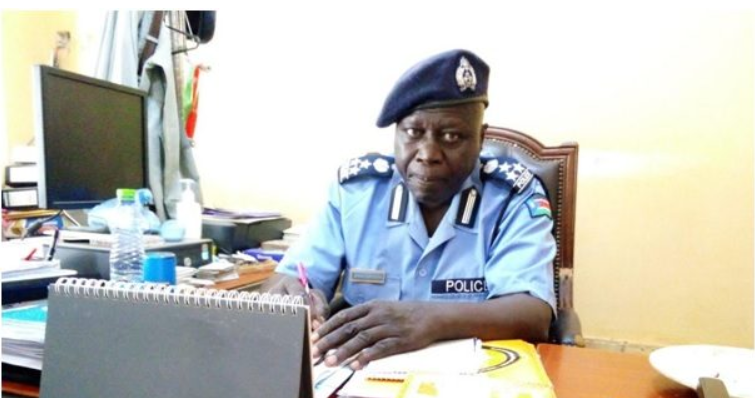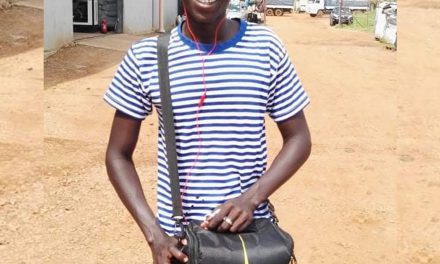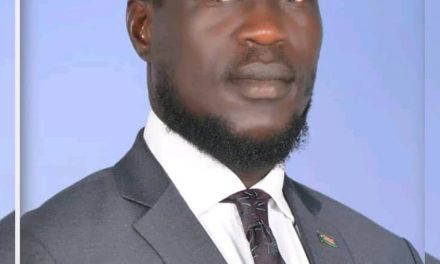
Police concerned by rising suicide cases in South Sudan

The National Police Service is concerned of the high number of suicide cases reported in recent days. Police say it confirmed four suicide cases across the country on Tuesday last week alone.
The police have recorded more than ten suicide cases in the last two months across the country. They say investigations show most of the suicide cases are caused by drug abuse and frustrations as a result of unemployment, social cultural issues and the economic hardships in the country.
The four cases were reported from; Lolero payam, Lopa county, Eastern Equatoria, Wanjok, Northern Bahr Ghazal, and two cases in Central Equatoria state with one from the Laparte-Kakwa area in Yei and the other in Hai Kuwait in Juba.
Brig. Gen. James Dak Karlo, the deputy spokesperson South Sudan National Police Service, says
The four suicide cases reported on Tuesday involve young people below the age of 30.
Karlo attributes the high rate of suicide cases to social – cultural triggers including drug abuse, frustration due to unemployment, distress and trauma due to the economic hardships in the country.
“The economic circumstances they’re facing, you find that they are not able to go to school and continue their education and they see that the future is deem and then they get distressed.”
“They need to be counselled sometimes but nobody follows up.” Karlo says noting, some young people are also distressed by marital issues such as forced marriage and dowry related difficulties these young people struggle with silently.
Karlo urges parents and guardians to monitor the behavior and wellbeing of their children and relatives in case they are struggling with problems that may make them suicidal.
“We should not neglect our children, we’ve to follow the crisis they’re facing.”
He charges parents and guardians including the communities and religious institutions to be their brother’s keeper.
“We also need advocacy in the radio, community gathering, churches and parents also have a big role to play. They have to follow the children in the morning. Have they gone to school? If this young man is not employed, maybe he is taking drugs, you’ve to see these young guys moving with him at the time he reports home (what’s) his health condition, or his mental condition and physical condition.” Karlo advised.
Daniel Juma, is the executive director of Farm for Change, an advocacy organization fighting drug abuse in South Sudan by raising awareness on the negative impacts of dangerous drugs like marijuana and cocaine. Juma strongly believes consumption of these drugs has health consequences that can make people suicidal.
In addition to illegal drugs young people now abuse drugs that are deemed legal in the country such as painkillers and syrups which are sold legally on the counter in pharmacies or drug shops across the country.
‘’Prescription drugs that are supposed to be used for medical purposes, the youths end up abusing them (too). I can give an example of Codeine, which is supposed to be a syrup to treat flu. People mix it with Coca-Cola and it gets them high.” Juma reveals.
“We’ve painkillers that people also abuse and these are both legal and prescription substances that enter the country legally. We have illegal drugs like Cocaine, Marijuana and the Ice, which is becoming a big problem in Juba.” He adds.
After abusing drugs Juma says the youth become vulnerable to sexual violence. The most common social risk behavior among young people is the sexual risk behavior that exposes young men and women to sexual behaviors that later make them suicidal. Juma says gang rape, for example, exposes boys and the survivor to sexually transmitted diseases like HIV whose impact is even worse on women who survive rape because they also get exposed to stigma.
“This person who has been raped goes through a lot of trauma and if she’s not helped through counselling, she will have suicidal thoughts because to be raped as a lady in the community, there’s a lot stigma that comes around that. This person needs constant counselling, if not, she will have suicidal thoughts.” Says Juma, who was once a drug addict and at one time survived drowning at the River Nile as a result of abusing substances. He quit drugs and now campaigns against the vice through the Farm for Change organization he started to create spaces and encourage conversations around drug abuse.
“People who abuse drugs have suicidal thoughts all the time because abusing drugs is running away from reality, if something happens to you, you don’t want to accept the reality and hide in addiction and making the decision to hide in addiction is already a suicidal thought.” Juma discloses.
The police say the public should be alert and cautious to detect any physical, mental and social change in the behavior of young people in the society and report them for counselling.





















Recent Comments